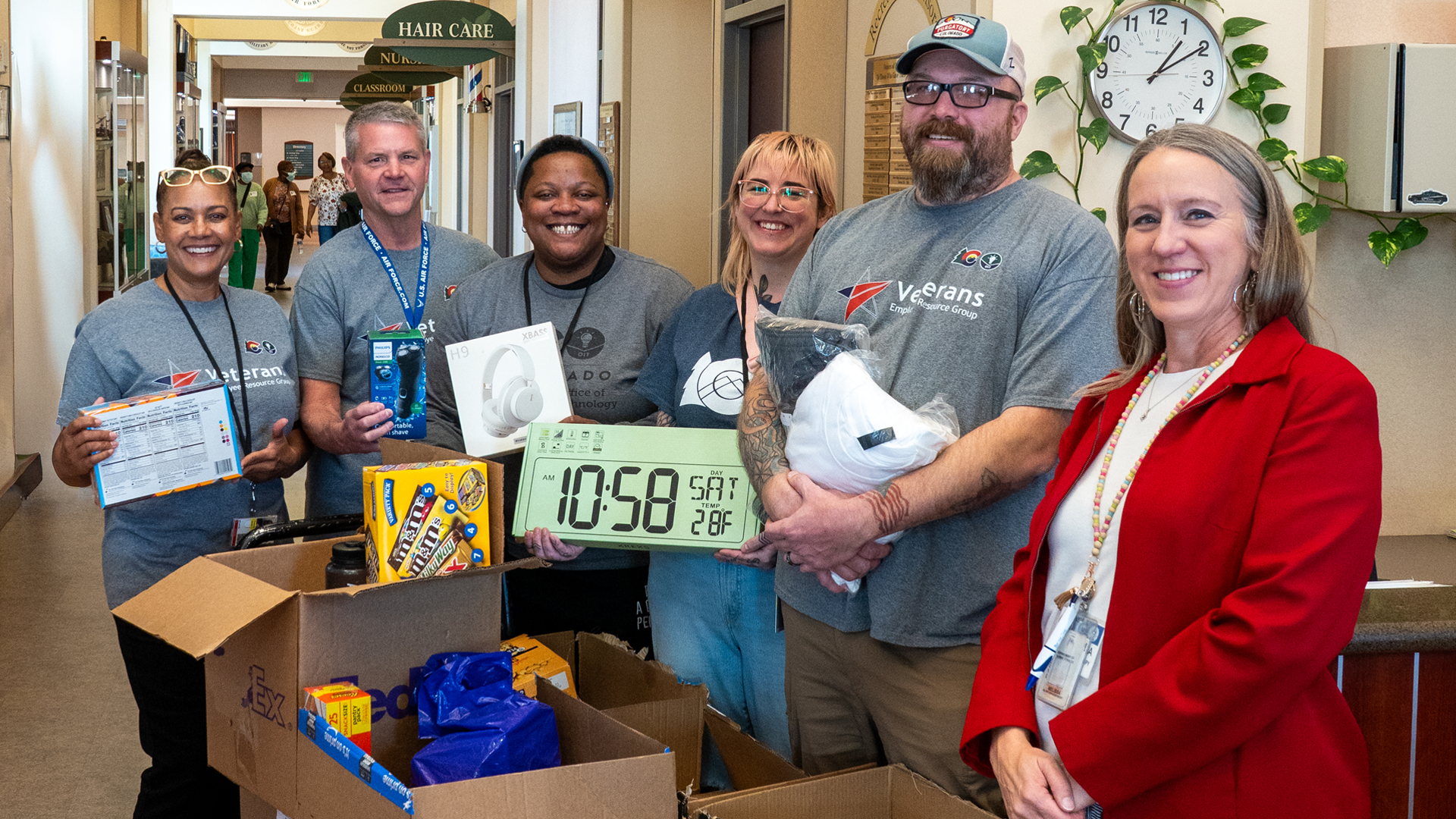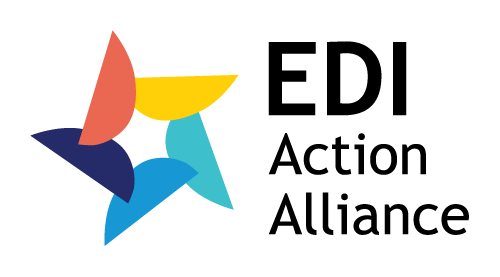Equity, Diversity & Inclusion
What is EDI?
Equity, diversity and inclusion (EDI) is about creating an even playing field for everyone. Some may think of it as a zero-sum game, meaning that there are not enough resources to go around. In reality, EDI is about examining the challenges faced by specific groups and designing environments, products and services that work better for everyone. Take the example of The Curb-Cut Effect in which people in the disability-rights movement, specifically those who use wheelchairs, advocated for cities to build curb cuts into sidewalk infrastructure. Today, curb cuts are common and benefit many groups - people using strollers, delivering goods, riding bicycles, pulling luggage, and more. This is an example of a solution that initially worked better for one group, but in reality, serves everyone better.
EDI at OIT
All OIT employees play an important role in making sure EDI practices are part of how we work together, whether they are an analyst, developer, project manager or work in any other area. This ultimately impacts how we serve all Coloradans. When it comes to technology, EDI isn’t just a nice thing to do, it’s strategic. It helps us understand how to best serve all Coloradans equitably and how to provide the most engaging experiences for our workforce.
EDI work is not a one-time decision or act. Like planting a garden, you don’t just plant seeds in hopes that they will bear fruit. It requires preparation and care for the soil. You have to water, weed, check on things over time, and this is the approach OIT takes with our EDI initiatives.
EDI Tenets: The North Star for OIT’s EDI Work
- Dignity
- Empathy
- Humanity
- Connection
- Systemic Change
- Courage
- Lifelong Learning
Tip of the Month
Bias in Artificial Intelligence (AI)
AI is embedded in many of the technologies that we use today. While these tools help teams be more efficient and individuals balance larger workloads, it is also important to be aware of potential biases that may show up in the technology.
According to articles from the Harvard Business Review and MIT Management:
- Bias Data: The data used to train AI may contain biases reflecting societal imperfections. Once flawed data is input into an algorithm, these biases can become more entrenched.
- Bias Prompts: Users may create biased prompts that lead to biased AI results.
- Confirmation Bias: Individual biases can also make it difficult for people to correctly evaluate their AI output, as they are less likely to challenge information that supports their existing beliefs.
- Data Accuracy: AI cannot distinguish between correct and incorrect information, ranking all data equally regardless of its accuracy.
AI bias can negatively impact marginalized groups (e.g., people of color, LGBTQ+ and people with disabilities) by perpetuating inaccurate or misleading information about them, reducing their ability to control their own narratives.

Creating a Connection Culture: A Behind-the-Scenes Look at the Veterans@OIT Employee Resource Group
While veterans are often viewed solely through the lens of their military service, OIT cultivates a supportive environment where veterans can leverage their experience to enrich OIT’s culture and enhance its success. Members of our Veterans@OIT ERG have opportunities to expand their personal and professional development by networking, providing training and participating in community engagement activities.
What we’re doing
We’re on a learning journey at OIT and know that we have a long way to go. Here are some of the exciting things we’re working on now:
- An annual EDI plan that centers on reducing burnout and increasing accountability, psychological safety and belonging for all employees.
- A Wildly Important Goal (WIG) focused on employee engagement that features EDI as a core component.
- We’re scaling up the training and coaching offered to all OIT employees and managers. We’re also setting up employee resource groups to create a sense of belonging for our employees living with marginalized social identities.
- Group coaching is offered to managers every quarter so they can meaningfully contribute to achieving our employee engagement WIG and follow through on performance goals related to inclusive leadership.
- We use data to objectively monitor progress, such as through EDI organizational assessments and demographic analysis of employee engagement data.
EDI Action Alliance

We have a robust group of employees who are passionate about taking steps to institutionalize EDI work at OIT. The group includes subcommittees focused on internal workplace culture and training. Among many projects, they are responsible for analyzing employee engagement data by demographics to understand how employee experiences differ, and hosting quarterly webinars on a variety of EDI topics. Check out the team charter.
Employee Resource Groups

AVID@OIT (Awareness of Visible and Invisible Disabilities) fosters and promotes an inclusive place for employees who identify as having a disability or are neurodivergent.

BIPOC@OIT promotes an environment where BIPOC (Black, Indigenous and People of Color) employees feel empowered, included and valued by providing resources, support and opportunities for growth and development.

Global Connections@OIT seeks to promote and showcase the view that all immigrants are humans who seek what all humans seek: the opportunity to live a good life, make our contribution, and leave a better world for our children; and that we choose to do this in the USA because of our belief in its promise.

Pride@OIT fosters and promotes an inclusive place for lesbian, gay, bisexual, transgender, queer, questioning, intersex and asexual OIT employees by honoring each individual’s values, beliefs, principles and lived experiences.

Veterans@OIT empowers OIT's veterans to expand their personal and professional development by communicating, networking, volunteering and providing training opportunities.

Women@OIT aims to provide a supportive community where women from all over OIT can connect, share experiences and access professional development opportunities.
Accessibility & EDI: Two sides of the same coin
Accessibility and EDI work go hand in hand. Accessibility is a commitment to providing equitable access to services and is the responsibility of each state employee and not a single person, team or agency. In 2021, legislation (HB21-1110) was passed that strengthens protections against discrimination on the basis of disability. Among other things, it requires state agencies and local governmental entities to meet web accessibility standards and establishes OIT as the authoritative body to help agencies put those in place. Check out OIT's Guide to Accessible Web Services and Accessibility Law for Colorado State and Local Government to learn more.
What’s next?
- While still in the early stages, we’re crafting EDI guidelines that affect the technology solutions we build at OIT and make decisions about how our technology impacts those we are serving.
Contact the EDI Team
Join us in this important work!
Interested in working with us to make Colorado a better place for all?
Explore a career at OIT!
